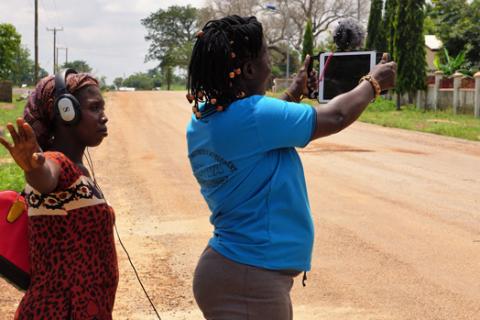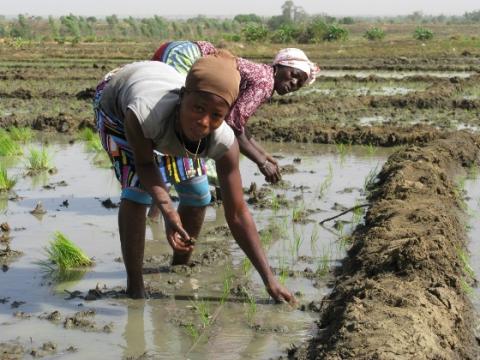Discover hidden stories and unheard voices on land governance issues from around the world. This is where the Land Portal community shares activities, experiences, challenges and successes.
 Follow our
Follow our
Sustainable Development Goals
Blog Series!
Interested in land corruption?
Follow our Land & Corruption Blog Series
for in-depth perspectives from the experts.
Issues
Geographical focus
On this International Day of Forests, we highlight the critical need for meaningful youth participation, particularly from Indigenous, local and Afro-descendant communities. Youth play a crucial role in protecting the world’s forests by offering fresh perspectives, innovative solutions, and a long-term commitment to conservation. Their creativity and urgency are key in addressing the complex challenges facing forests, such as deforestation and climate change.
Ensuring secure land tenure is crucial for improving land development, as both local and foreign investors often hesitate to engage in land transactions when there is uncertainty about ownership rights. The term "Land Tenure Insecurity" refers to the apprehension that someone else might claim ownership of the purchased land in the future, creating a significant risk for investment. This phenomenon is particularly common in the Sub-Saharan African Region of which Ghana is no exception. The positive impact of land tenure security is far-reaching.
Over the past decade, the gender gap in land rights and therewith the importance of women’s tenure security has gained increasing awareness and momentum in many parts of the world. Despite numerous measures to support gender equality in land rights, rural and urban women continue to face numerous obstacles in accessing land whether through inheritance, transfers, or leases.
But what are the other factors - in their daily lives and particularly under customary law - affecting women's tenure security?
Senegal has the particularity of being the westernmost point of the African continent, which is located at the tip of Almadies in Dakar, the country's capital. With an area of 196,722 km2 , Senegal is bordered by the Atlantic Ocean to the west, Mauritania to the north and Guinea and Guinea-Bissau to the south. The Gambia, a country located on either side of the river bearing the same name, forms an enclave within Senegal. The relief of Senegal is generally flat and low, with an average altitude of less than 50 metres over three quarters of the territory.
In sub-Saharan Africa, less than 13 percent of women aged 20-49 have rights to land, according to research by the World Bank. Therefore, securing their land rights remains a very crucial matter to boost their socio-economic empowerment.
Addressing the land and conservation communities’ discomfort in discussing the relationships between migrants, Indigenous peoples, and tropical forests in the fight against climate change.
From Mali to Iraq, people in conflict zones are proving especially vulnerable to climate extremes
An estimated 100,000 people died and livestock were decimated when a long drought hit West Africa in the 1970s.
Isa, a 61-year-old community leader from northern Mali, recalled: “At that time, we only had to search for food. We could move freely with our animals. Now, we can’t even search for food. We are forced to stay in place or move to cities because of the insecurity.”
The artisanal mining sector in West and Central Africa is a rapidly expanding economic force employing millions of young people, often those who are the most vulnerable. Numerous ancillary informal economies are associated with the export of what are commonly known as “conflict minerals” such as diamonds, gold and coltan. Women grow crops and process food for the labor force of young men digging deep into the ground to pull out the ore and precious metals and stones.
2018 could be transformative for the indigenous and community land rights movement, with unprecedented opportunities for scaling up rights recognition around the world.
In Ghana, land is an indispensable asset. It’s a source of livelihood and social identity, and men and women should have equal opportunities to benefit from it. But when entrenched patriarchy tips the power scales, and corruption reinforces cultural norms, the impact on women can be devastating.
A recent survey reveals that one in three Ghanaians have been asked to pay a bribe for land-related services in recent years. The study was done by the Ghana Integrity Initiative, the local chapter of Transparency International in Ghana.
The recent Stockholm World Water Week provided plenty of opportunities to explore the links between water and land rights, and the importance of these rights for ensuring sustainable development at both local and national level.






